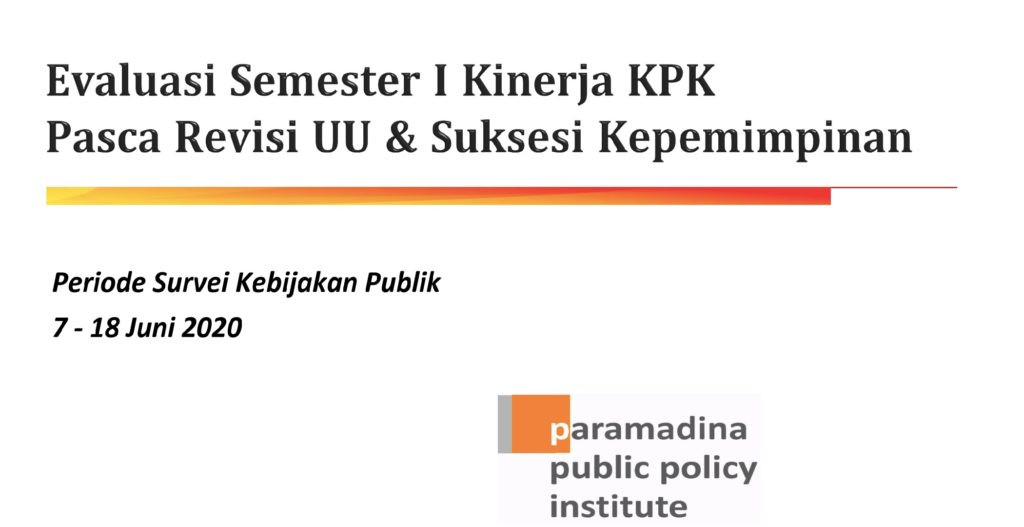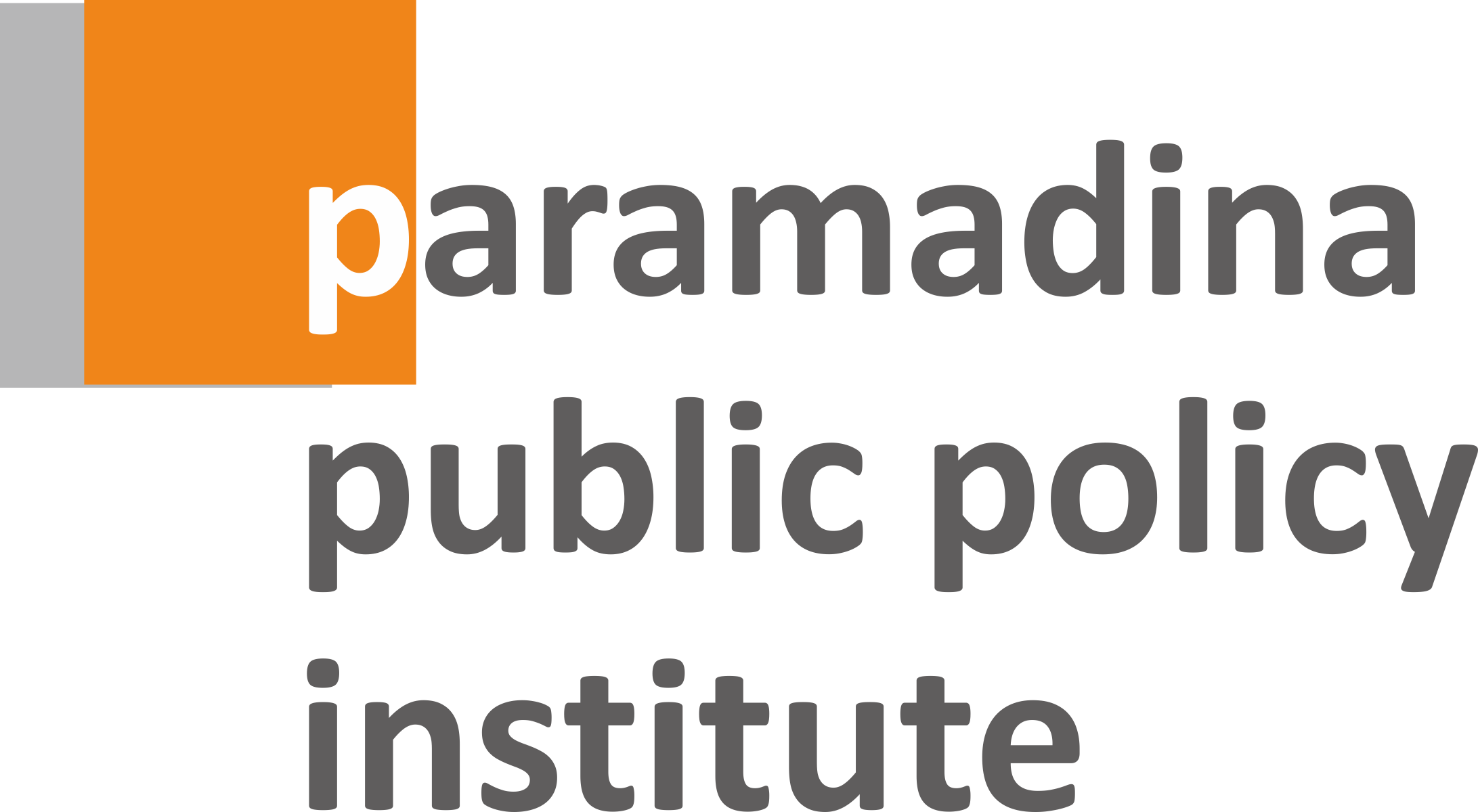
Medcom.id/PPPI
June 25, 2020
Jakarta – The public is not yet satisfied with the performance of the current Corruption Eradication Commission (KPK) this far. This public dissatisfaction was revealed by an evaluation survey in the first semester of 2020 conducted by Paramadina Public Policy Institute (PPPI).
Assessing elite stakeholders’ opinion on the revision of Law 19/2019 well-known as the KPK Law, the PPPI revealed that the change has a significant, yet dissatisfying impact on the performance of the anti-graft agency. As many as 95 percent of the stakeholders considered the performance of the KPK as unfavourable.
“Even perception of a positive impact, if any, [of the Law revision] on the KPK was wiped out to 0 percent. While those who considered [that there was] no change are only 5 percent,” said PPPI’s Managing Director Ahmad Khoirul Umam in a virtual discussion entitled” Launching of KPK’s Performance Monitoring Results of [2020] Semester I “, Thursday, June 25, 2020.
The performance of the KPK leadership in the 2019-2024 period has yet to satisfy the public either. As many as 74 percent were dissatisfied with the performance of the current administration of the KPK, headed by Firli Bahuri, an active police general.
The remaining 23 percent of respondents said they were not that satisfied. Then 2 percent did not answer and another 2 percent with other opinions.
“This should be a ‘whip’ to improve performance and regain the public trust and civil society groups as the forefront of KPK defenders,” said Umam.
The relationship between the KPK and civil society also tended to be poor. As many as 51 percent of respondents said that the current relationship between the KPK leadership and civil society elements was not good.
“This must soon be evaluated considering that elements of civil society are still considered as the healthiest pillars for democracy and the anti-corruption agenda in Indonesia. The new KPK leadership needs to understand the history that civil society is a key bumper for the KPK’s defense,” Umam said.
Changes to the KPK Law and the change of KPK leadership seemed to have implications for the ineffectiveness of the agency’s performance. As many as 34 percent of respondents saw that the number corruption cases the KPK can handle tended to decrease. The process of search and investigation was considered being more difficult, 32 percent responded.
“Then 22 percent [of respondents] thought that the KPK is reluctant to touch big cases in the power circle. That the internal dynamics of the KPK tended to be less stable was expressed by 5 percent of respondents,” said Umam.
The survey was conducted on 7-18 June 2020 with a purposive non-probabilistic method. A total of 60 respondents participated, with data collection carried out online through a questionnaire.
Survey respondents were including anti-corruption activists, lecturers in anti-corruption studies, and law and anti-corruption journalists. They are also policy advisors in the fields of economics and governance; public policy researcher; and figures of social and religious organizations.
“The survey respondents consisted of independent stakeholders, consisting of social segments with adequate understanding capacity on the dynamics of anti-corruption politics in Indonesia and also the role of the KPK in the central issue of eradicating and preventing corruption in the country,” said Umam. (*)
